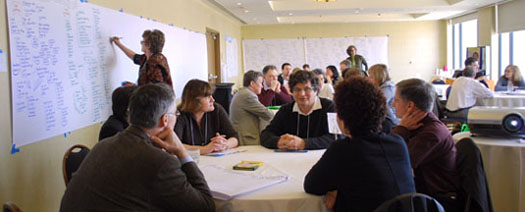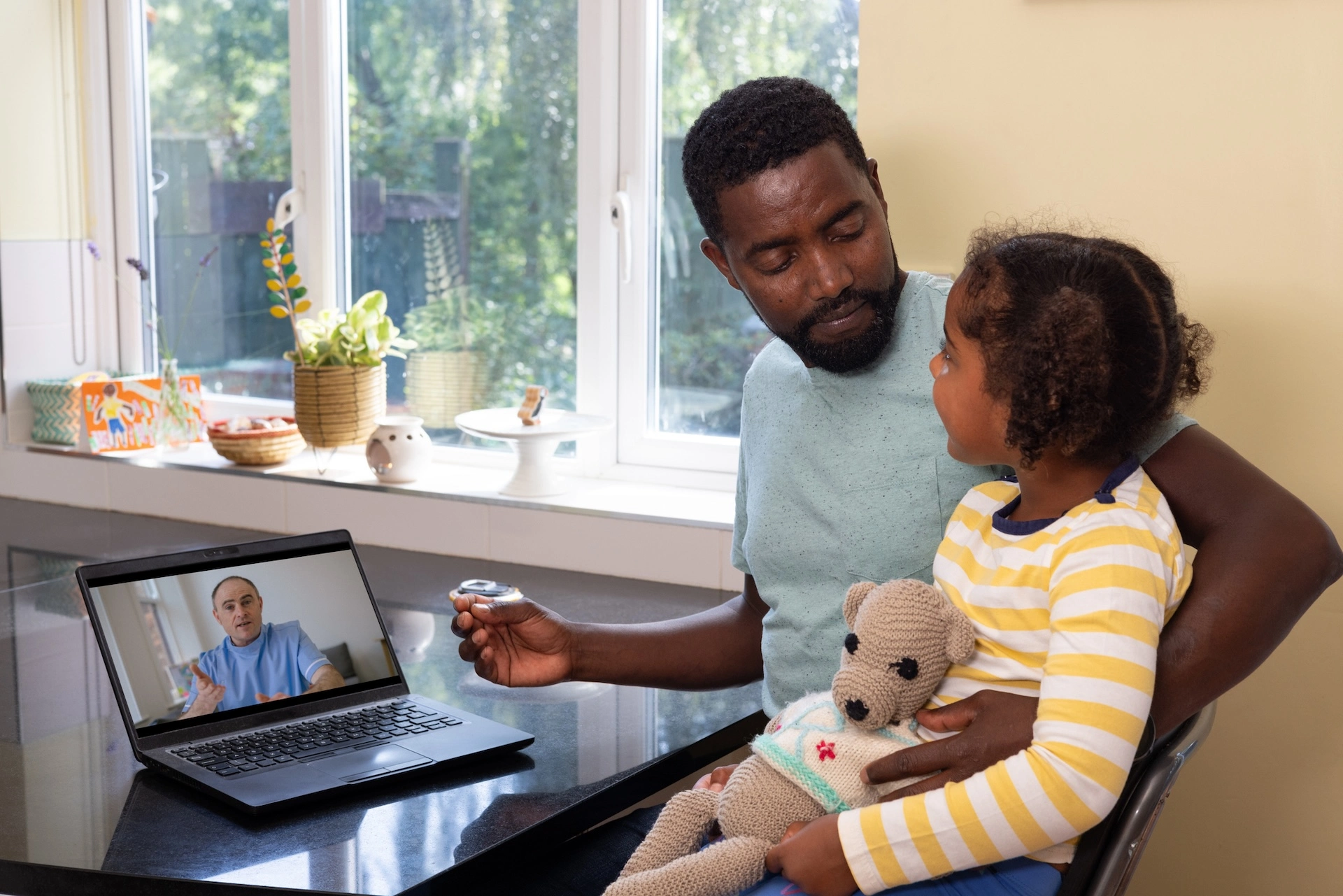Researchers from around the country gathered in San Francisco in early March to share information on the current state of autism research, highlight knowledge gaps and identify priority autism research topics that Kaiser Permanente may be uniquely positioned to investigate. Autism spectrum disorders now affect 1 in 110 children, according to the Centers for Disease Control and Prevention (CDC).
Spearheaded by Lisa Croen, PhD, a senior scientist at the Division of Research and director of the Autism Research Program, and sponsored by the Garfield Memorial Research Fund and the Kaiser Permanente Division of Research, the Blue Sky meeting was the first Kaiser Permanente autism symposium of its kind.
The day-long meeting brought together autism researchers, parents, clinicians and leaders from several Kaiser Permanente regions, as well as academic researchers, and representatives from the National Institutes of Health, Autism Speaks, the CDC and caregiver/advocacy groups.
“The Blue Sky meeting encapsulates how I think the research should be conducted,” said Croen. “We brought people together and we let them talk to each other. We had parents at the table, physicians at the table, researchers at the table — all talking about studies we can do across different Kaiser Permanente research centers, from basic epidemiological research, focused on identifying risk and causal factors, to research about interventions and health services.”
One of those who came to the table to talk was Joanna Jaeger, a longtime Kaiser Permanente member and the parent of an 18-year-old boy with autism. “Coming to the blue sky meeting and sharing what it’s like for families connects researchers and clinician to our reality and the challenges we face as parents of children with ASDs,” she said. “It’s important for families like ours to participate in research because it’s a way to make a difference for other families.”
The state of that research and goals for future research were a major topic of discussion for attendees like Jaeger. They also learned more about studies currently under way at the Autism Research Program, as well as how Kaiser Permanente resources — such as electronic medical records for its diverse membership and a biorepository — might support future research.
In her opening remarks, Croen described another resource now being developed — a registry of children with autism and their families. The autism registry, one of four projects being conducted by the Mental Health Research Network (MHRN), will identify approximately 20,000 children and adolescents with autism spectrum disorders from across the country who may be asked to participate in future studies of treatments and causes.
The MHRN was established and funded in 2010 by a three-year $10.5 million grant from the National Institute of Mental Health. The network will leverage medical information from the HMO Research Network to help researchers conduct comparative effectiveness research.
The morning session of the Blue Sky Meeting, held on a classic blue-sky, San Francisco day, began with in-depth perspectives on the current state of autism research from a variety of investigators.
- Cathy Rice, PhD, a behavioral scientist with the Developmental Disabilities Branch at the National Center on Birth Defects and Developmental Disabilities at the CDC, discussed autism prevalence, the population of children with ASDs, surveillance and disparities.
- Joachim Hallmayer, MD, associate professor of psychiatry and behavioral sciences at Stanford University and Neil Risch, PhD, of the Division of Biostatistics at the University of California, San Francisco (UCSF) and director of UCSF’s Institute for Human Genetics, discussed research related to the genetics of autism.
- Jennifer Pinto-Martin, PhD, director of the University of Pennsylvania Center for Autism and Developmental Disabilities Research and Epidemiology, discussed risk factors for autism and research related to the possible causes of autism.
- Catherine Lord, PhD, director of the University of Michigan Autism and Communication Disorders Center, presented on screening, diagnosis, intervention and the life course of autism.
- Robert Hendren, DO, a UCSF professor of psychiatry and behavioral science, talked about autism treatment and clinical trials.
- Clara Lajonchere, PhD, vice president of clinical programs at Autism Speaks, discussed the Autism Treatment Network and the Clinical Trials Network.
The morning agenda concluded with small group discussion about the strengths and weaknesses of current autism research and gaps in current research efforts.
During afternoon sessions, attendees discussed their visions for future autism research, including what they think may be the greatest opportunities for advancing the evidence base and the potential roadblocks to pursuing those opportunities.
“There was a lot of enthusiasm at the meeting,” said Croen, who explained that the summit will likely be the first of similar Kaiser Permanente-sponsored meetings.
Future meetings will help define the national research agenda Kaiser Permanente may be uniquely suited to pursue by virtue of its large, diverse membership, comprehensive electronic medical records and well-established research infrastructure located within a health care delivery organization.






Comments (0)